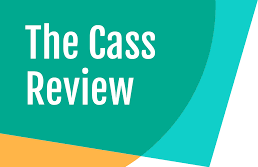
After Cass: the lessons for higher education
Robert Laverick and Georgia Testa argue that higher education should champion academic freedom and equality, not Stonewall
The trans inclusion policies of higher education institutions are increasingly failing to reflect the law. The difficulties they face are due in large part to the influence of Stonewall across the sector which has resulted in the adoption of trans inclusion, and EDI policies more generally, that do not reflect the law. This risks legal and/or reputational damage to institutions, their staff and students, and has already led to some universities having to apologise to academics[i] and others, as well as being taken to and then losing in Employment Tribunals[ii].
Stonewall’s Diversity Champions Programme[iii] has been widely criticised for incorrectly describing the Equality Act 2010 (EA) in its training materials, by conflating sex with gender and stating incorrectly that gender identity, rather than gender reassignment, is a protected characteristic. Swathes of the public and private sectors have withdrawn from the programme and the associated workplace equality index citing such concerns.[iv]
Furthermore, Stonewall’s guidance is at odds with the recent legal protection afforded to gender critical beliefs: that sex is important, immutable, and binary, and should not be conflated with gender or gender identity.[v] Stonewall characterises such views as not worthy of respect and transphobic. Universities should, however, note that equating gender critical views with transphobia has been found to constitute unlawful discrimination/harassment under the EA.
Universities should seek to protect and support anyone under the protected characteristic of gender reassignment in the EA. However, a policy for how to address all trans identified people that is based in acceptance of gender identity ideology promoted by Stonewall, is unlikely to capture the nuances required to balance the interests and rights of trans identified and gender critical people.
Therefore, we are advising all universities to withdraw from the Stonewall Diversity Champions Programme and then urgently review and update their trans inclusion and EDI policies to follow the law.
Further, the developments in paediatric gender services and the associated government guidance that has followed the publication of the Cass Review[vi], demand due consideration as part of the much-needed review into institutional trans equality policies. The UK government and HM’s opposition have given reassurances that they will implement the report in full. The route by which, and timeline for, the implementation of aspects of the recommendations is unclear, but it can reasonably be assumed that this will be coming down the line in the immediate or near future. We advise that Stonewall is kept away from any such review to ensure that it is legally coherent and consistent with the Cass Review and any government guidelines, statutory or otherwise.
The Cass Review made recommendations in relation to three groups of people, all of whom the higher education sector regularly interacts with:
- Children (under 18) as part of outreach, community engagement, admissions processes, and course requirements (e.g. in healthcare or education programmes);
- 18-25 year olds who make up a large majority of the student base (both undergraduate and, to a lesser extent, postgraduate cohorts) and some staff;
- Over 25 year olds who make up some of the postgraduate student base, and a large majority of the post-doctoral and staff cohorts.
This sets up scenarios in which different cohorts may require different considerations, including that of government guidance which may, in some cases, conflict with the guidance provided as part of Stonewall’s Diversity Champions Programme, of which the vast majority of UK universities are members, and/or universities’ own Trans Equality Policies.
The implications of the Cass Review are far reaching for the higher education sector. Staff and students who interact with children and young people below the age of 18, will need to follow government’s guidance about recording of sex, use of pronouns and change of name, and social transition which Cass identifies as a non-neutral practice that may be potentially harmful[vii]. The greatest impact of the report will be on students and staff in healthcare and education programmes who regularly interact with children, young people and young adults.
It is likely that some individual staff and students who are trans identifying, or who are sympathetic to Stonewall’s approach to trans issues, will resist policy changes that align with the Cass Review and related government guidance. Nevertheless, higher education institutions have a duty to revise their policies in the light of Cass. This will require some sensitive balancing of the interests of all concerned. But if the history of the involvement of Stonewall in trans inclusion policies has taught us anything, it is that the development of policy in this complex and sensitive area cannot involve Stonewall.
Robert Laverick and Georgia Testa are members of the Leeds AFAF branch. A thank you to Alumni For Free Speech (AFFS) for helpful comments.
As with all our blog posts, the views expressed here are those of the authors, not AFAF.
Image Credit: The Cass Review logo is licensed under the United Kingdom Open Government Licence v3.0.
[i] E.g, University of Essex apologised to Professors Jo Phoenix and Rosa Friedman as a consequence of the Reindorf report https://www.essex.ac.uk/blog/posts/2021/05/17/review-of-two-events-with-external-speakers
[ii] E.g., J Phoenix v The Open University [2024] which also resulted in an apology from the Vice Chancellor of the Open University https://ounews.co/around-ou/ou-speaks-out/a-statement-from-professor-tim-blackman-vice-chancellor-of-the-open-university-regarding-the-recent-employment-tribunal-judgment/
[iii] https://www.stonewall.org.uk/diversity-champions-programme
[iv] https://www.peoplemanagement.co.uk/article/1743092/why-are-employers-leaving-stonewall-diversity-programme
[v] Employment Appeal Tribunal: Forstater v CGD Europe & Ors [2021]
[vi] Cass Independent Review of gender identity services for children and young people [2024]
[vii] Draft guidance is being revised after an initial consultation exercise which closed in March 2024

